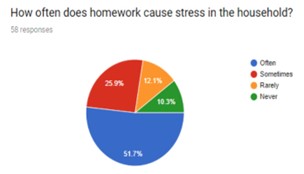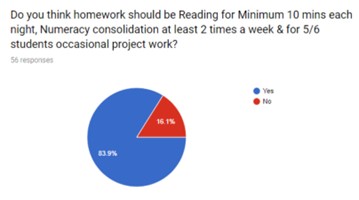In 2017, parents were surveyed on the effects of homework to help us evaluate the performance of our home learning policy. Find more information below about home learning at Sts Peter and Paul Primary School.
Overview of home learning
Home learning consists of:
- Nightly reading
- 10 minutes literacy and numeracy consolidation three nights per week, as suggested by class teachers
- Occasional project work in the upper grades



